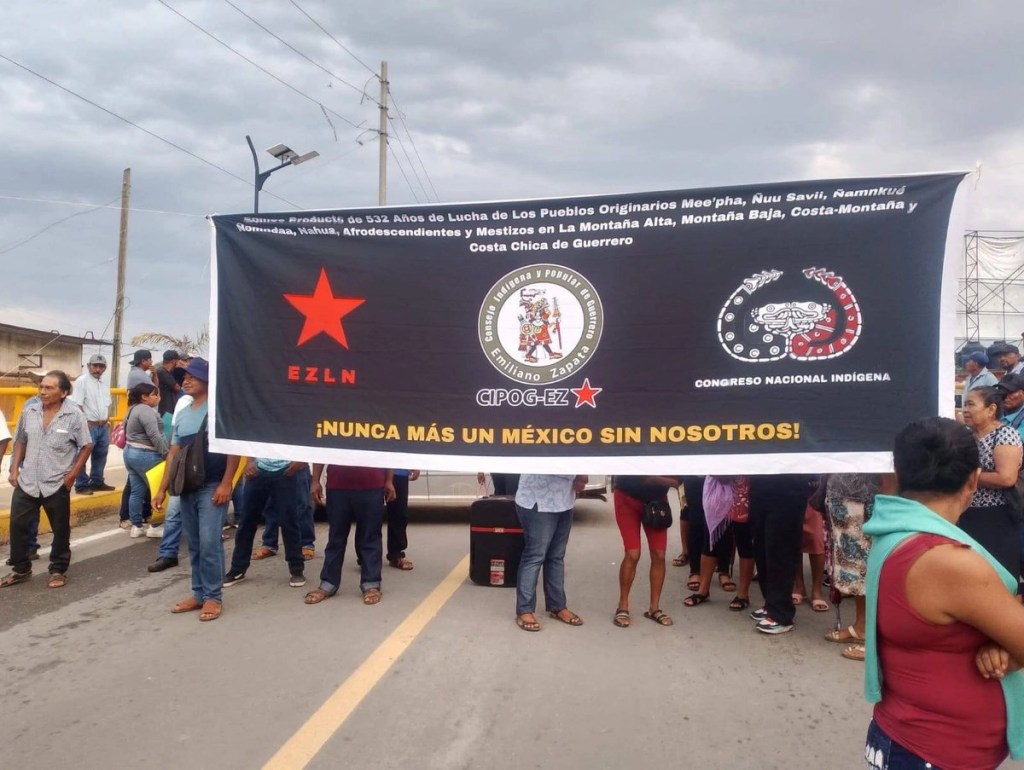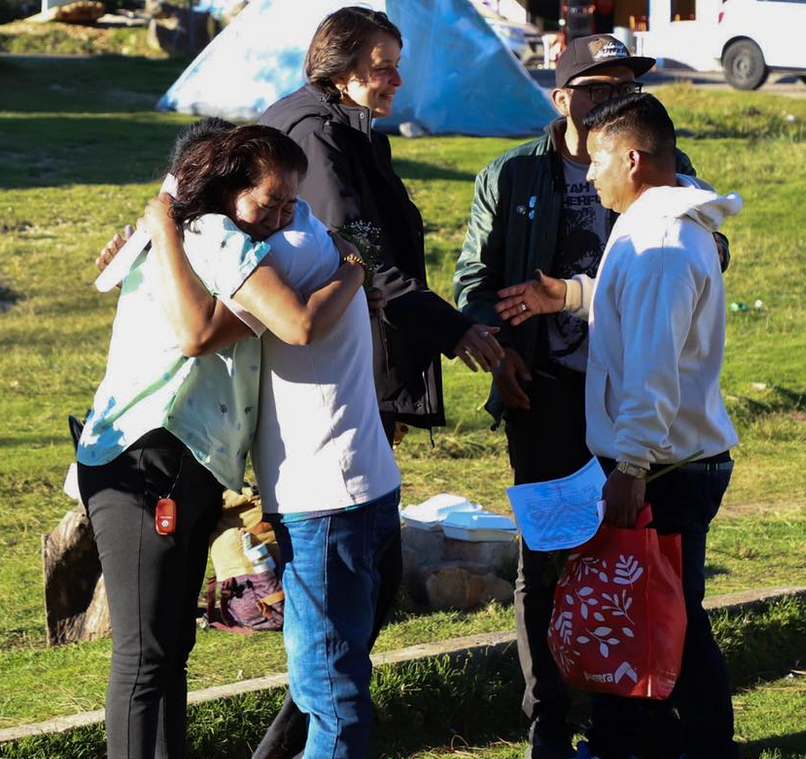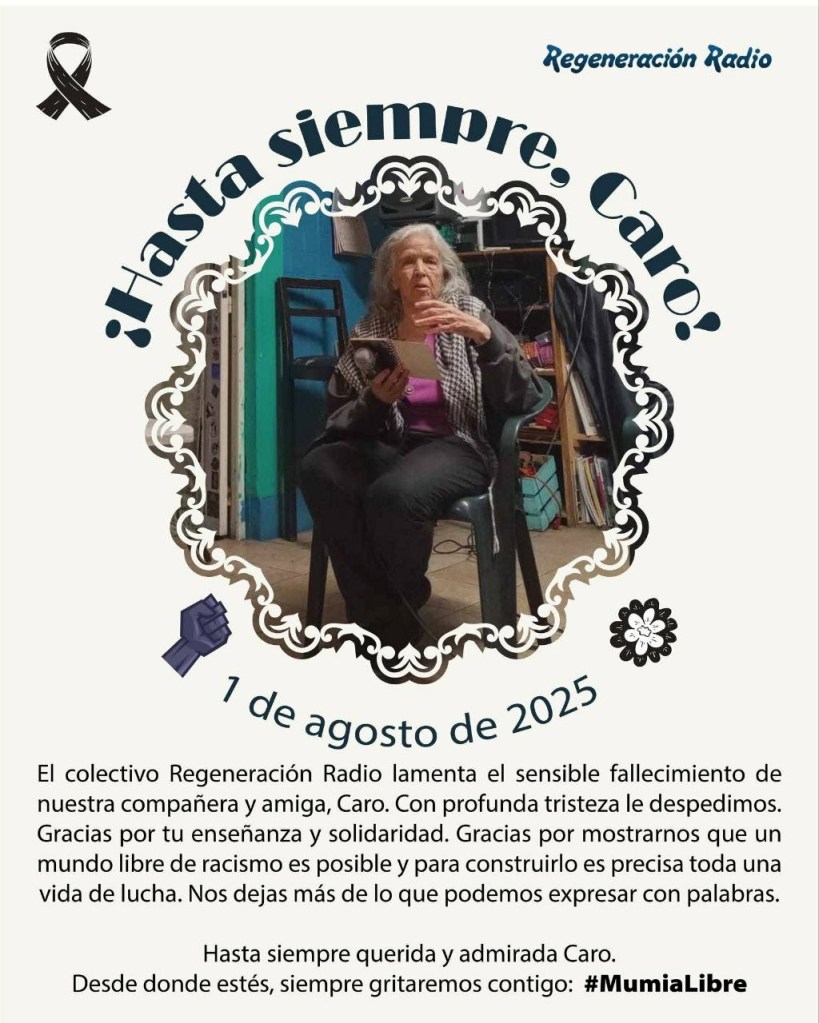The following statement by the Indigenous and Popular Council of Guerrero – Emiliano Zapata (CIPOG-EZ) announces that the organization is joining with the Union of Peoples and Organizations of the State of Guerrero (UPOEG). Shortly after this statement, the two groups, alongside the affiliated Community Police of the Regional Coordinator of Communal Authorities of the Founding Communities (CRAC-PC-PF), issued a manifesto that mirrors much of what is addressed below. The below was translated from the Spanish by Scott Campbell.
On Friday, January 30, alongside human rights observers, these groups organized a caravan to El Terrero, Guerrero, from which 300 community members were displaced six years ago by the state-backed narco-paramilitary group Los Ardillos. On the way, Los Ardillos attacked the caravan twice, with heavy weapons fire and exploding drones. The army and National Guard, both of whom were nearby, did not intervene. The caravan was forced to turn back. Fortunately, no one was injured or killed.
TO THE ZAPATISTA ARMY OF NATIONAL LIBERATION
TO THE NATIONAL INDIGENOUS CONGRESS-INDIGENOUS GOVERNING COUNCIL
TO THE NATIONAL AND INTERNATIONAL SEXTA
TO THE NETWORKS OF RESISTANCE AND REBELLION
TO REBELLIOUS EUROPE
TO NATIONAL AND INTERNATIONAL HUMAN RIGHTS BODIES
TO THE CIVIL OBSERVATION MISSION OF THE SEXTA
TO THE FREE AND INDEPENDENT MEDIA
TO THE PEOPLE OF GUERRERO
TO THE PEOPLE OF MEXICO AND THE WORLD
January 27, 2026
Brothers and sisters, the war that unfolds all over the world is the same that is experienced in Mexico. Our dead are added to the dead which are counted by the thousands. In this new partitioning of the world and territorial reconfiguration, capitalism strikes with greater violence to appropriate everything, even though to do so it must trample on the pretenses that the very same capitalism claims exist: the sovereignty of the nation-state, national and international law, human rights, minority rights, Indigenous rights, women’s rights, and children’s rights. Not sovereignty, nor law, nor respect for life in any of its forms: everything is earnings at any cost. The masks have fallen and capitalism shows itself for what it is – war and death against humanity and life.
In the state of Guerrero, murders are part of daily life, the State does not exist as a representative of the popular will, and the laws are a dead letter. For many years our state has been governed by capitalists, be they mining companies that plunder natural resources or be they criminal groups that poison our young people and terrorize the entire population. The state pretends to exist to keep up appearances of being one more part of an orderly country with progress and development – damn lies! As such we can see the photograph of President Claudia Sheinbaum with Guerrero state governor Evelyn Salgado finishing breakfast, both smiling, they hug, they pose, while the country continues filling with clandestine graves, while searching mothers keep up hope of finding their children alive, digging in hills and mountains, while the borders fill with criminals that displace entire communities, be they criminals from the cartels or criminals of the world, Donald Trump and his goons, who with satisfaction and mockery see how they have the world’s political class on its knees, including Mexico.
Continue reading









